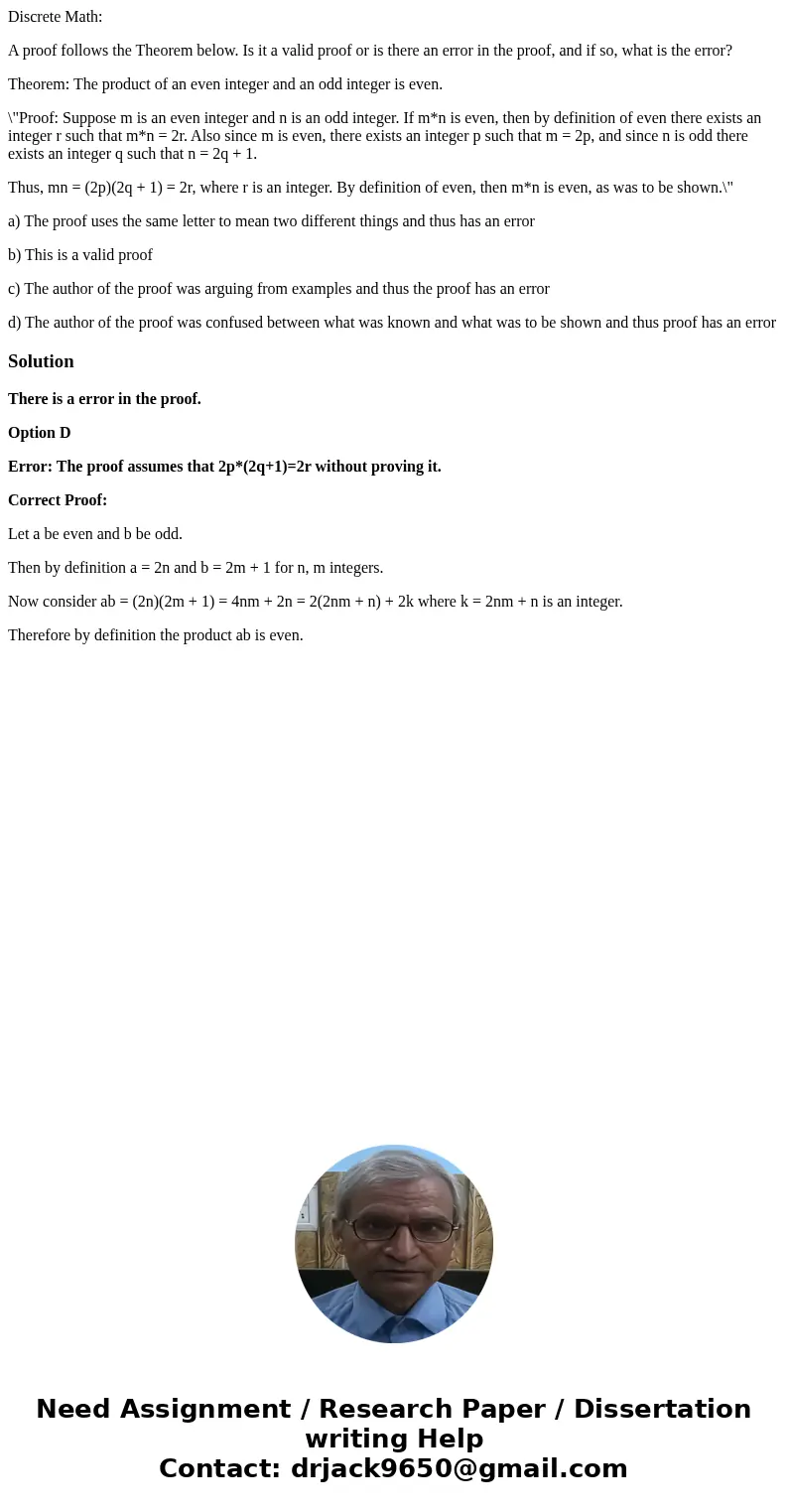Discrete Math A proof follows the Theorem below Is it a vali
Discrete Math:
A proof follows the Theorem below. Is it a valid proof or is there an error in the proof, and if so, what is the error?
Theorem: The product of an even integer and an odd integer is even.
\"Proof: Suppose m is an even integer and n is an odd integer. If m*n is even, then by definition of even there exists an integer r such that m*n = 2r. Also since m is even, there exists an integer p such that m = 2p, and since n is odd there exists an integer q such that n = 2q + 1.
Thus, mn = (2p)(2q + 1) = 2r, where r is an integer. By definition of even, then m*n is even, as was to be shown.\"
a) The proof uses the same letter to mean two different things and thus has an error
b) This is a valid proof
c) The author of the proof was arguing from examples and thus the proof has an error
d) The author of the proof was confused between what was known and what was to be shown and thus proof has an error
Solution
There is a error in the proof.
Option D
Error: The proof assumes that 2p*(2q+1)=2r without proving it.
Correct Proof:
Let a be even and b be odd.
Then by definition a = 2n and b = 2m + 1 for n, m integers.
Now consider ab = (2n)(2m + 1) = 4nm + 2n = 2(2nm + n) + 2k where k = 2nm + n is an integer.
Therefore by definition the product ab is even.

 Homework Sourse
Homework Sourse